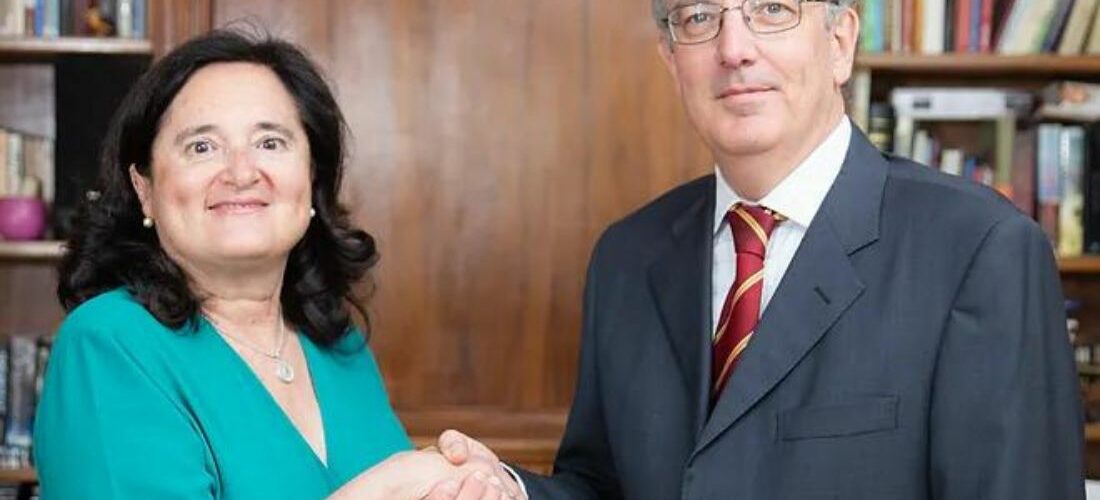Richard Susskind inaugurates the GLTHedge Cycle
Richard Susskind, the global visionary on the future of legal services, inaugurated the GLTHedge series of exclusive events organized by the Global LegalTech Hub (GLTH). The meeting, held in the auditorium of Esade Law School, is Susskind’s first participation in an event of this type in Spain, and has generated great expectation among leaders in the legal sector.
GLTHedge
The event brought together the most influential legal directors from twenty leading companies in Spain, who had the unique opportunity to interact directly with Susskind. The session began with welcoming remarks from the dean of Esade Law School, Jorge Castiñeira, followed by Ferran Sala, president of GLTH, who presented the initiatives and challenges that GLTH will address in the coming year, including the GLTHedge series of exclusive events.
Sala highlighted how “artificial intelligence is radically transforming legal practice, creating new working models and improving accessibility to justice. The GLTHedge aims to create a space for discussion for leading experts and practitioners in the legal profession.”
Law and medicine
Professor Richard Susskind focused the first few minutes of his talk on differentiating between optimizing service delivery and transforming the way we practice. In these opening bars Susskind highlighted with a comparison between law and medicine, in both “for the client, it is not the process that is important, but the outcome. Clients are interested in how technology can affect the delivery of value: safety, efficiency and lower cost.
“Technology will not only make the legal system more efficient, but it will also innovate the way the profession practices, creating a more inclusive and accessible legal ecosystem,” Susskind said. He highlighted that currently, a large part of the population lacks access to justice and that technology will be the key to reverse this situation.
He also stressed that “the lawyer may think that the AIgen is not empathetic or has no emotions, but although he does not feel, he can learn and know how to react to certain situations”. On that same point he stressed that “we are opining about things we know today about technology, but we have no idea what awaits us.”
Finally, he commented that he is convinced that “hallucinations will be corrected and will become more and more accurate.”
Technology in universities
In a format where the audience was able to exchange impressions in a very close way, Richard Susskind pointed out that “universities must incorporate technology and its use as part of the career and must also help the development of digital and entrepreneurial skills for a profession that is going to be transformed”.
On whether technology will generate fewer lawyers, the professor commented that “Fewer lawyers will not be needed, because the system is moving towards hyper-regulation, but the profession will be understood in a new way where ethics will be of great importance”.
The event concluded with words from Dean Jorge Castiñeira, who stressed the importance of aligning the academy with the demands of the labor market.












